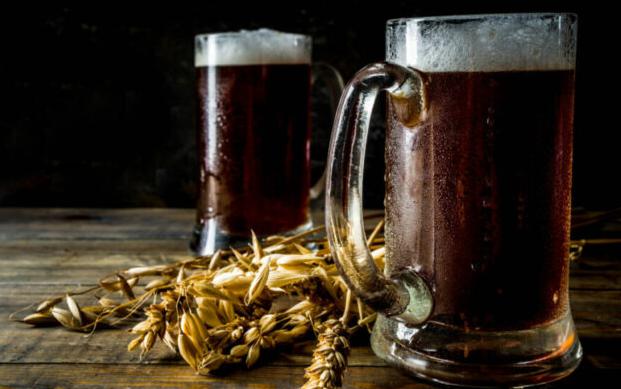Sour beers have been gaining in popularity over the past few years. While the sour beer brewing process is more complex than other beer styles, it can be achieved with the right ingredients and patience.
They’re becoming increasingly popular and can be found on tap in bars and breweries worldwide.
Brewing a Sour Beer: What You Need to Know
Sour beers have become increasingly popular in recent years, and for a good reason. These beers are tart and refreshing and offer an exciting twist on traditional beer sour flavors. But what goes into making a sour beer?
Let’s look at the key ingredients you need to know if you’re looking to brew your own sour beer.
The Base Beer
The base beer for a sour is typically an ale such as pale ale or wheat beer. The base will determine the final product’s color, flavor, and body, so it’s essential to choose one that will give the desired result. Many different types of ales are available, so take your time when selecting one.
Yeast
This lactic acid-producing bacteria is responsible for giving sours their characteristic tartness. The bacteria convert sugars in the wort into lactic acid, which gives the final product its unique flavor. When adding lactobacillus, it’s essential to ensure it is properly sanitized to avoid any spoilage or off-flavors in the final product.
When brewing a sour beer, yeast is one of the essential ingredients. The most common type of yeast used for sour beers is Lactobacillus bacteria. This type of bacteria ferments sugars into lactic acid, which gives the beer its distinctive “sour” flavor.
Different yeast strains can add complexity and depth of flavor to sour beers. Examples include Brettanomyces (Brett), Saccharomyces (ale yeasts), and Pediococcus (lactic acid bacteria).
Each strain brings its unique character to a sour beer, so experiment with different combinations for exciting flavors!
Ideally, two or more yeast strains should be used as each strain brings something different to the table and can enhance each other’s flavors.
Hops
Hops are also essential for making a sour beer. Hops provide balance and structure to the beer, as well as bitterness that helps cut through the tartness of the lactic acid produced by the yeast. Not all hops work with sour beers; Cascade hops tend to work best because they impart a spicy flavor that pairs nicely with the tartness of the sour beer.
Grain
As with any other kind of beer, grain is essential in making a sour beer. The grain acts as food for the yeast and provides sugar that will be fermented into alcohol and lactic acid during spontaneous fermentation.
For sour beers, pale malts work best because they provide more fermentable sugar than darker malts do while still imparting a malty flavor profile to the finished product.
Fruit/Vegetables/Spices/Herbs
For added complexity, fruit, vegetables, spices, or herbs can be added during fermentation or aging.
Fruits like cherries, raspberries, blueberries, and cranberries are all popular choices but feel free to explore other fruits as well! Vegetables like cucumber and peppers can also add exciting notes, while spices like cinnamon and coriander add warmth and depth of flavor.
Herbs like basil or oregano can also bring something unique to sours – use your imagination!
What You Need to Know About Making a Sour Beer
If you’re looking to get into brewing your sour beers, there are a few things you should know. The acidity of sour beers comes from wild yeast and bacteria that produce lactic acids, which taste sour beer.
Specific ingredients like specialty grains and hops will affect the flavor profile of your beer, so it’s essential to research before you start brewing.
Monitoring pH levels throughout the brewing process are also integral for getting the desired flavor and consistency.
Lastly, proper sanitation and aging techniques can also give your beer an enhanced taste and make sure it’s safe to drink.
How is Sour Beer Made?
While sours are referred to as “beer,” they are not the same as other types of beer. Sour beers are typically not brewed in a sterile environment and do not use traditional brewer’s yeasts (such as saccharomyces cerevisiae).
There are many ways to make sour beer. Still, the most common methods involve brewing the “wort” (unfermented beer), then introducing acid-producing bacteria naturally by exposing the wort to the open air or adding a bacterial culture.
The fermenting beer is held in stainless steel tanks or oak barrels for several months (or even years!) while the slow, steady bacterial fermentation occurs.
Furthermore, unlike most beers, which are aged in metal fermentation tanks, sours are typically aged in wooden vessels, allowing communities of organisms to live in the beer.
Before beginning the brewing process, you must first decide what sour beer you want.
Remember that the basic steps for brewing sour beers may vary depending on the beer you’ll be making. However, all sour beer styles share many of the following steps.
- Mash your grain
- Add a small number of aged hops to the boil
- Allow your wort to cool
- Look for specific characteristics as the beer begins to ferment
- Ferment your beer
Different Types of Sour Beer
- American wild ales
- Gose
- Berliner Weisse
- East Flanders brown ale/Oud bruin
- Lambic
- Gueuze
- West Flanders sour red ale
How to Serve Sour Beer
Sour beer serving temperatures differ depending on the variety. Berliner Weisse should be served at 40-45 degrees Fahrenheit, while other beers (such as sour ales, lambics, and gueuzes) should be served at 50-55 degrees Fahrenheit.
Conclusion
Brewing your sour beer can be an incredibly rewarding experience – even if it does take some practice! Now that you know some critical ingredients for brewing this unique beer style, you should have no problem getting started on your first batch!
Sour beer brewers have been experimenting for centuries to create some of the most complex, flavorful beer. With the right ingredients and techniques, you can create a delicious sour beer that will impress your friends and family. So why not give it a try?
Read next: The Best Foods To Pair With Cold Beer





